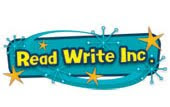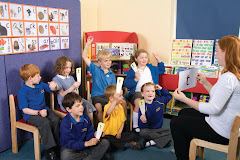


Why are good decodable reading books so important for early readers?
Decodable reading books are books used in the early stages of teaching children to read with phonics. They contain only (or mainly) text that can be ‘decoded’ (or sounded out) based on the letter-sounds the child has already been taught. This encourages children to sound out words and blend sounds to read words, rather than guessing words from pictures or context.
This recent thread on Mumsnet is a good example of how frustrating it can be for children who are given the wrong sort of reading books when they are in the early stages of learning to read with phonics.
If a school is teaching a certain phonics programme such as Jolly Phonics, Read Write Inc., or Letters and Sounds, then in an ideal world the children would all be given decodable reading books that follow the same sequence as that particular scheme
Unfortunately, many schools still have large stocks of the Oxford Reading Tree ‘Biff and Chip’ style books. These use predictable, repetitive text with illustrations that are deliberately designed to provide clues to the text content. They also use many ‘sight words’ that cannot be decoded so the child who has been learning phonics gets very frustrated when presented with lots of words that contradict what they have been taught.
Children using these books soon develop a bad habit of guessing what the words might be rather than reading them. This may not be a problem whilst their reading books contain lots of pictures but eventually their memory for sight words will reach overload and if they haven’t learnt how to read the alphabetic code properly they will struggle to read more complex texts as they move on in school.
If a school is teaching a certain phonics programme such as Jolly Phonics, Read Write Inc., or Letters and Sounds, then in an ideal world the children would all be given decodable reading books that follow the same sequence as that particular scheme
Unfortunately, many schools still have large stocks of the Oxford Reading Tree ‘Biff and Chip’ style books. These use predictable, repetitive text with illustrations that are deliberately designed to provide clues to the text content. They also use many ‘sight words’ that cannot be decoded so the child who has been learning phonics gets very frustrated when presented with lots of words that contradict what they have been taught.
Children using these books soon develop a bad habit of guessing what the words might be rather than reading them. This may not be a problem whilst their reading books contain lots of pictures but eventually their memory for sight words will reach overload and if they haven’t learnt how to read the alphabetic code properly they will struggle to read more complex texts as they move on in school.
If your child brings home books that they are unable to read based on the phonic sounds they already know, the best advice is to share the book with them and help with any words they are unable to work out, to avoid them struggling and guessing words.








Hmm, so for an Enrichment Class for Kids, we should be aware of what books to have in our shelves, just in case some of the children try reading them and got confused?
ReplyDelete